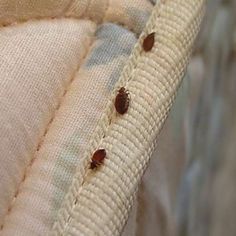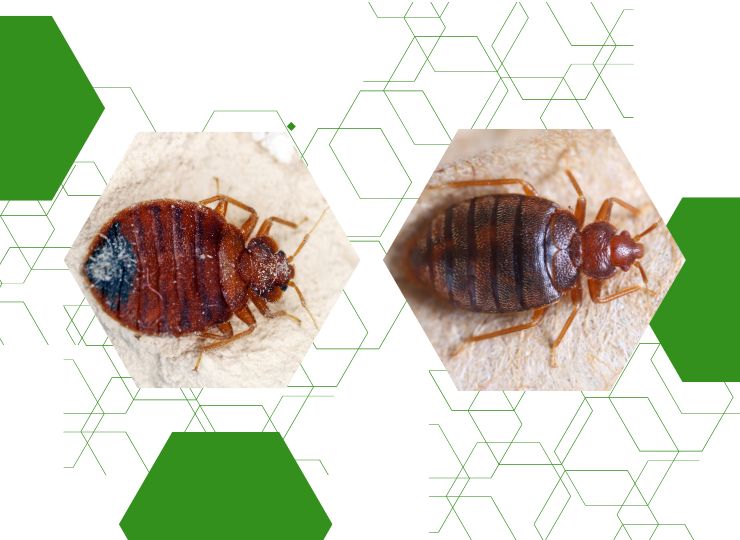Affordable Bed Bug Heat Treatment for Quick and Effective Results
Affordable Bed Bug Heat Treatment for Quick and Effective Results
Blog Article
Get Enlightened Concerning the Kinds Of Parasite Control Approaches and Their Advantages for Home Owners
Recognizing the numerous insect control approaches available to home owners is necessary for effective parasite administration. Property owners that are educated can make tactical options that not only address bug concerns however also boost the overall top quality of their living atmosphere.
Chemical Parasite Control Methods
Chemical bug control methods are an important component of incorporated parasite administration approaches for homeowners looking for reliable solutions to pest problems. These techniques entail the application of chemical substances developed to get rid of or hinder pests that endanger personal effects, health and wellness, and convenience. Usual chemicals used include insecticides, fungicides, herbicides, and rodenticides, each customized to target details pests.
The key advantage of chemical pest control is its rapid efficiency; numerous formulas supply instant outcomes, minimizing pest populations considerably quickly. Furthermore, developments in chemical formulas have actually caused products that are a lot more eco-friendly and have lower toxicity levels for non-target microorganisms when used correctly.

Biological Bug Control Strategies
Natural bug control approaches have obtained prominence as house owners look for safer and much more lasting choices to traditional chemical techniques. Biological bug control strategies utilize natural predators, bloodsuckers, or virus to take care of pest populations successfully. This method is not only ecologically pleasant yet additionally minimizes the risk of damage to non-target types, consisting of beneficial pests and wildlife.
Among one of the most usual organic control techniques entails presenting natural predators into the atmosphere. Ladybugs can be used to regulate aphid populaces, while nematodes target soil-dwelling pests like grubs. Additionally, parasitoids-- organisms that live on or within a host-- can be employed to regulate details parasite varieties by laying eggs inside them, eventually resulting in their demise.
Another method is using biopesticides, which are derived from natural products such as plants, microorganisms, or minerals (bed bug exterminator). These items can properly target bugs while presenting very little risk to family pets and human beings. Overall, organic bug control techniques give home owners with an effective means of pest monitoring that lines up with eco-friendly principles, advertising a much healthier living environment while reducing dependence on synthetic chemicals
Mechanical Parasite Control Methods
Mechanical insect control techniques encompass a selection of techniques that literally stop or eliminate bugs without the use of chemicals. These strategies are especially advantageous for homeowners looking for ecologically pleasant options while making certain the security of their space.
One typical approach is the use of obstacles, such as nets, catches, and screens, which stop pests from going into homes or details areas. Mounting window screens can successfully maintain pests out, while using physical barriers around gardens can prevent bigger parasites like deer or rabbits. Furthermore, mechanical catches made for rodents can capture and remove these bugs without the demand for poisonous materials.
Another effective technique includes making use of vacuum cleaners and mops to get rid of parasites directly from surfaces. Routine cleaning and maintenance can considerably minimize bug populations by eliminating food sources and hiding places. Furthermore, using devices like ultrasonic pest repellents can prevent various parasites via acoustic wave that are unpleasant to them but inaudible site link to humans.
Cultural Pest Control Practices
Cultural parasite control techniques concentrate on customizing the atmosphere and administration techniques to create problems that are much less favorable to pest infestations. These techniques are basic in preserving a balanced community and minimizing the reliance on chemical treatments. By changing agricultural techniques, home owners can successfully discourage pests while advertising plant wellness.
One common strategy consists of crop turning, which interrupts the life process of bugs by changing the sorts of plants grown in a specific location (bed bug exterminator). This not just minimizes pest populaces but additionally enhances dirt health and wellness. Additionally, intercropping-- growing diverse crops in proximity-- can perplex insects and lower their capability to situate their favored host plants
Water monitoring is one more critical element of social methods. Correct irrigation strategies can avoid standing water, which offers as a breeding ground for mosquitoes and various other insects. Preserving tidiness in and around the home, such as regularly eliminating particles and food waste, can substantially reduce insect destination.
Incorporating these cultural methods into a thorough pest management technique enables homeowners to create an atmosphere that normally prevents parasites, thereby enhancing the effectiveness article of other control techniques while promoting lasting horticulture and landscape design.

Integrated Parasite Administration Approaches
Integrated Insect Management (IPM) represents a holistic approach that incorporates different techniques to effectively take care of bug populations while minimizing ecological effect. This approach incorporates biological, cultural, physical, and chemical techniques to accomplish sustainable parasite control. By examining pest populations and their all-natural opponents, IPM emphasizes tracking and identifying parasites before executing control actions.
Among the core principles of IPM is the usage of limits, which develop the level of insect activity that warrants intervention. This guarantees that therapies are applied just when required, reducing the reliance on chemical pesticides. Biological control methods, such as presenting natural killers or parasites, job in combination with cultural techniques like crop turning and environment control to interfere with pest life cycles.
In addition, IPM motivates the usage of least-toxic chemical options when treatment is essential, prioritizing items that pose very little threat to non-target organisms vermin exterminator and the atmosphere. For home owners, adopting IPM comes close to not just boosts the efficacy of bug monitoring but likewise advertises a much healthier living environment, promoting biodiversity and lowering chemical exposure. Inevitably, IPM encourages house owners to make enlightened decisions that balance insect control with environmental duty.
Verdict
To conclude, understanding the numerous parasite control approaches encourages house owners to make educated decisions relating to pest administration. Each method-- chemical, biological, mechanical, cultural, and incorporated insect management-- offers distinct advantages that deal with different needs and preferences. By picking proper methods, house owners can efficiently manage pest populaces while decreasing health and wellness dangers and environmental influences. This educated approach adds to a much healthier living environment, advertising general well-being for family members and pet dogs alike.
Comprehending the numerous insect control approaches available to property owners is crucial for efficient parasite administration.Chemical parasite control methods are an essential element of incorporated pest administration approaches for property owners looking for efficient remedies to pest problems. Overall, organic bug control techniques offer home owners with an efficient ways of parasite monitoring that aligns with environmental concepts, promoting a much healthier living environment while minimizing dependence on artificial chemicals.
Social pest control methods concentrate on changing the setting and management techniques to develop problems that are much less conducive to pest invasions.In final thought, comprehending the numerous parasite control approaches empowers homeowners to make informed decisions concerning pest management.
Report this page